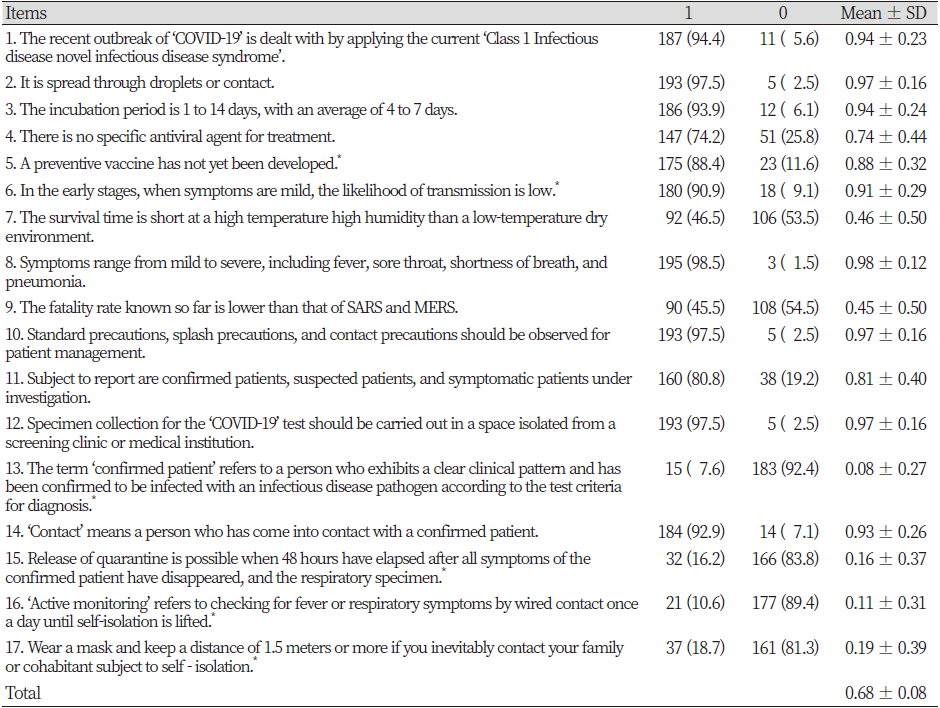Abstract
This study aimed to verify the relations of COVID-19 infection-related knowledge, dental infection control performance, and psychosocial health of dental hygienists. From the data was analyzed through the frequency analysis, t-test, one way ANOVA, and pearson’s correlation analysis with a total of 198 dental hygienists using SPSS Statistics 21.0. The correct answer rate for knowledge about COVID-19 was higher with a bachelor’s degree or higher. Thus, when the level of education was higher, the performance was also high (
Figures & Tables

Table 1. Knowledge of COVID-19 Unit : N(%)


